The national sports network business has become very crowded over the past four years. But that hasn’t slowed down Harvard graduate and Yahoo Sports Radio CEO David Gow.
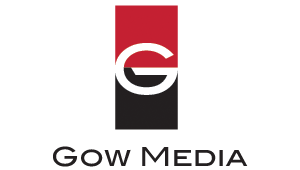 Based in Houston, Gow Media, is the lone independent sports radio network operator. In less than five years, the company has tripled its affiliate base, upgraded its lineup, and established a partnership with Yahoo, one of the world’s leading digital brands.
Based in Houston, Gow Media, is the lone independent sports radio network operator. In less than five years, the company has tripled its affiliate base, upgraded its lineup, and established a partnership with Yahoo, one of the world’s leading digital brands.
Those moves along with a few other sound investments have positioned the company well for the future. Just last week, the company confirmed plans to offer its programming in the Philadelphia area for the first time. With that addition, the network now reaches into seven of the Top 10 markets and can be heard in some shape or form on more than five hundred radio stations nationwide.
Critics will point out that the content featured on many affiliates aren’t the network’s top flight weekday programs, and the station’s which air the programming aren’t ratings leaders in their respective markets but Gow is not deterred by that.
He believes that all stations which clear his network offer value and he’s made it easier for them by not crippling them with rights fees and forced clearance of his weekday shows. He helps stations customize plans that satisfy their objectives, while finding ways to incorporate his own brand, its content, and its advertisers onto their airwaves.
The biggest challenge that most networks face is getting their programming cleared by local stations. Affiliate representatives will aggressively push their network’s weekday shows that air M-F between 6A-7P, but if that opportunity can’t be solidified, then the focus turns towards finding a way to gain entry onto the radio station.
Once a provider agrees to carry some of the network’s programming, it counts as an official affiliation. Why is that important? Because once an affiliation is secured, networks can list it and use it to their benefit when trying to secure business from national advertisers. The more stations and the bigger the markets, the larger the reach, which means more revenue.
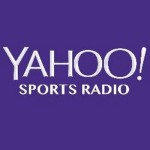 To compete in the national space and gain local partnerships, David has had to be creative. In 2012 he purchased “The Sports Flash Radio Network” and it’s since become a part of Yahoo Sports Radio’s programming strategy. The network creates custom sports updates for local sports stations and in turn it helps them enter markets that don’t carry their long form content.
To compete in the national space and gain local partnerships, David has had to be creative. In 2012 he purchased “The Sports Flash Radio Network” and it’s since become a part of Yahoo Sports Radio’s programming strategy. The network creates custom sports updates for local sports stations and in turn it helps them enter markets that don’t carry their long form content.
The network also cuts deals with operators who express interest in nights/overnights/weekend programming and/or appearances from Yahoo contributors on their local shows. By offering flexibility, Gow is proving to local groups that he’s invested in their success, and not trying to compromise their ability to run their radio stations effectively.
What makes their approach unique during the prime hours of weekday programming is that unlike ESPN Radio, Fox Sports Radio, and CBS Sports Radio, Yahoo’s weekday programming is built around four local market shows. That design has led to daily clearance in Washington DC, Charlotte, NC, Los Angeles, CA, Austin, TX, and Houston, TX, the cities which their key talk shows originate from.
Many industry people believe that five national sports networks can’t be sustained long term. I share that same opinion. But as I discovered during my fifty minute conversation with David Gow, if you’re betting on Yahoo Sports Radio to turn off the lights and call it a day, you’re going to be waiting for a while.
Here’s my conversation with Yahoo Sports Radio CEO David Gow. It covers everything from the start of his career, to the development of Yahoo Sports Radio, to lessons learned as a radio owner, to the challenges that lie ahead for each of his radio stations.
Q: How does a guy with a background as a corporate executive at Compaq and as CEO for Ashford.com wind up in the sports talk radio business?
A: I always loved the medium and was an avid listener and Houston sports fan. When we sold Ashford in 2002, I had a chance to evaluate what I wanted to do next and I knew that I wanted to work in a business that I was passionate about. As luck would have it, an opportunity became available to enter this industry, and it was one I was determined to be a part of.
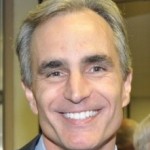 Q: So you enter the industry in 2007 when you purchased KGOW 1560AM, a local Houston AM signal. Four years later you assume control of the Sporting News Radio network which puts you instantly onto 150+ radio stations nationwide. As someone who was brand new to the industry, and yet being presented with these incredible opportunities for expansion, how hard was it for you to find the right people to surround yourself with?
Q: So you enter the industry in 2007 when you purchased KGOW 1560AM, a local Houston AM signal. Four years later you assume control of the Sporting News Radio network which puts you instantly onto 150+ radio stations nationwide. As someone who was brand new to the industry, and yet being presented with these incredible opportunities for expansion, how hard was it for you to find the right people to surround yourself with?
A: It was definitely a challenge to get the right team in place. Over the course of time we’ve had to make changes, but during the past 18 months I think we’ve assembled a talented team that is steering us in the right direction. We’ve grown our digital business significantly. Our sports updates business has expanded and become a valuable tool for our partners, and the distribution for our programs has attracted new markets and stations.
Q: I’ve talked to a lot of people about you, and the buzz words that follow are usually ‘high character guy, smart, likeable, loyal & willing to trust’. Those same positive qualities though may have worked against you early on. Were you too nice and too trusting when you were establishing the company?
A: There were people I depended upon early on who didn’t ultimately work out for us. The label “too nice” is interesting though because I do hold people accountable. I think that I’m fair and easy to work for if you’re taking care of your responsibilities and helping us grow the business.
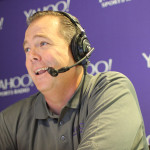 Q: A big momentum changer took place for the company when you re-branded Sporting News Radio as Yahoo Sports Radio in August 2011. Why did you make that change & why was it important?
Q: A big momentum changer took place for the company when you re-branded Sporting News Radio as Yahoo Sports Radio in August 2011. Why did you make that change & why was it important?
A: We loved the Yahoo brand and the investments they were making into the sports world. Their position as a digital leader was very attractive to us and we felt that by partnering with them, it would position us strongly for the present and the future. We actually did look at alternative brands but there was nothing as compelling. Since forming the relationship it’s proven to be very strong and effective. We couldn’t be happier with the relationship.
Q: Industry folks may not realize this but since you entered the network business, you’ve experienced a lot of affiliate growth. What do you attribute it to?
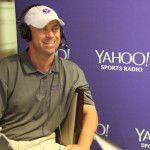 A: We have grown our affiliates carrying our long form programming to 185, and we have about 385 brands carrying our sports updates. Our total amount of distribution is now over 550 stations. That’s something we are very proud of.
A: We have grown our affiliates carrying our long form programming to 185, and we have about 385 brands carrying our sports updates. Our total amount of distribution is now over 550 stations. That’s something we are very proud of.
I believe a big part of why we’ve experienced growth is because we’ve made significant investments in talent. We hired Sean Salisbury, Steve Czaban, Steve Bunin, Travis Rodgers, Jeff Passan, Adrian Wojnarowski, and a number of other great talents, and we feel strongly about our product.
We have also worked hard to build relationships in the industry and develop partnerships that benefit us and our affiliates. We not only provide quality content to them but we also are fortunate to have talent working for us who understand the business. Many of them get involved to help our partners by calling into their local shows, speaking with their local advertisers, voicing local commercials, and assisting their needs.
Q: What was the best advice you were given about making the move into the national sports radio business?
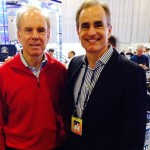 A: In the network business, I have more constituents to be in conversation with than on the local end of the business. I was told long ago, “spend less time trying to advance your own agenda, and more time listening to the objectives of other people“. That advice has served me well.
A: In the network business, I have more constituents to be in conversation with than on the local end of the business. I was told long ago, “spend less time trying to advance your own agenda, and more time listening to the objectives of other people“. That advice has served me well.
Q: What’s been the toughest lesson you’ve learned?
A: The national sports radio landscape has been much tougher than we expected. The expansion of the format has tempered the growth for many of us and it’s forced us to look for new ways to expand our business. Digital is a much bigger priority now than ever before.
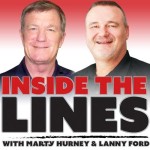 Q: From a strategic standpoint, the network features shows on the national stage that operate out of local markets. This approach has helped you gain daily clearance in some great locations including Los Angeles, Washington DC, Houston, Austin and Charlotte. Why do you believe this strategy is effective?
Q: From a strategic standpoint, the network features shows on the national stage that operate out of local markets. This approach has helped you gain daily clearance in some great locations including Los Angeles, Washington DC, Houston, Austin and Charlotte. Why do you believe this strategy is effective?
A: Although the shows originate from different places, we see them as national shows. Over the course of a 24/7 day, we present programs from many geographic areas. That gives us an advantage with how we reach and connect with our audience. It also serves our advertisers well because we’re able to place their products in front of sports fans all across the country, as well as in the digital space.
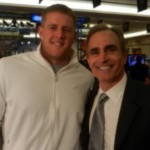 Q: When you look at the national sports radio picture today, there are 5 networks operating the format regularly. Is that too much?
Q: When you look at the national sports radio picture today, there are 5 networks operating the format regularly. Is that too much?
A: I do believe it is crowded but we are profitable, growing, and investing in this business. We won’t be letting people go this year, and we feel very bullish about our business.
Q: When it comes to business, how much does it matter to your advertisers that your prime content clears a local market station versus gaining spot clearance on a brand during a M-SU 6a-mid schedule?
A: There are different types of sales. There are some clients who will buy based on the network’s total audience reach. But there are also some who do want to attach themselves to talent and shows and see the programming clearing in larger markets. We need to be able to show those clients and affiliates how we perform by show and station, and we strive to be the user friendly network. We see ourselves as the partner who doesn’t burden the radio station with rights fees and forced bundling. We want to be the group that works with the local operator to enjoy shared success.
Q: On the local level, ESPN 97.5 became the 2nd highest rated station in the Houston market during the October book. What has changed to help the station gain bigger traction?
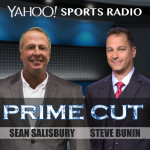 A: There are several factors. We added a little more content, and we’re now cross promoting the stations more. It’s about recycling the cume between both brands. We also switched John Granato and Steve Bunin, two moves that we believe have benefitted them both. The brand sounds great, and is comprised of some very strong talent, and with more consistency and some smart additions, we’re now seeing better results.
A: There are several factors. We added a little more content, and we’re now cross promoting the stations more. It’s about recycling the cume between both brands. We also switched John Granato and Steve Bunin, two moves that we believe have benefitted them both. The brand sounds great, and is comprised of some very strong talent, and with more consistency and some smart additions, we’re now seeing better results.
Q: Are there plans in the future to make a bigger run at the local play by play rights for the Houston market teams?
A: We presently carry the Houston Dynamo, our local soccer team, and I’d love to be a partner of the Astros and Rockets. The Texans recently signed a long-term deal with their current partner. We believe we provide something unique and attractive in the sense that we can offer local teams the support on both AM and FM, while combining it with the promotion of a national network to make their stories an even bigger focus for sports fans around the country.
Q: Looking to the future, what are your objectives and goals for ESPN 97.5 and the Yahoo Sports Radio Network?
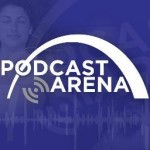 A: We believe we’re going to win the digital landscape. Some of the other brands have TV relationships that are important to them, and we have a digital partner that is a leader in the online space. We recently launched PodcastArena.com and since mid-August we’ve had 4.6 million listens. That number is growing by leaps and bounds.
A: We believe we’re going to win the digital landscape. Some of the other brands have TV relationships that are important to them, and we have a digital partner that is a leader in the online space. We recently launched PodcastArena.com and since mid-August we’ve had 4.6 million listens. That number is growing by leaps and bounds.
We’ve also started taking our shows and editing the best parts and making short form audio files available. Yahoo then uses content tags to place them into locations that have appeal to an individual’s preferences. That helps us expose our content to people who may not have been aware of it before.
Those two items alone are going to be significant components to our growth in the future and we’re excited about the possibilities and looking forward to building on the momentum we’ve created during the past five years.
For more information on Yahoo Sports Radio, visit their website by clicking here or follow them on Twitter by clicking here. You can also learn more about Gow Media’s local station ESPN 97.5 in Houston by clicking here.

Jason Barrett is the President and Founder of Barrett Media since the company was created in September 2015. Prior to its arrival, JB served as a sports radio programmer, launching brands such as 95.7 The Game in San Francisco, and 101 ESPN in St. Louis. He also spent time programming SportsTalk 950 in Philadelphia, 590 The Fan KFNS in St. Louis, and ESPN 1340/1390 in Poughkeepsie, NY. Jason also worked on-air and behind the scenes in local radio at 101.5 WPDH, WTBQ 1110AM, and WPYX 106.5. He also spent two years on the national stage, producing radio shows for ESPN Radio in Bristol, CT. Among them included the Dan Patrick Show, and GameNight.
You can find JB on Twitter @SportsRadioPD. He’s also reachable by email at Jason@BarrettMedia.com.




